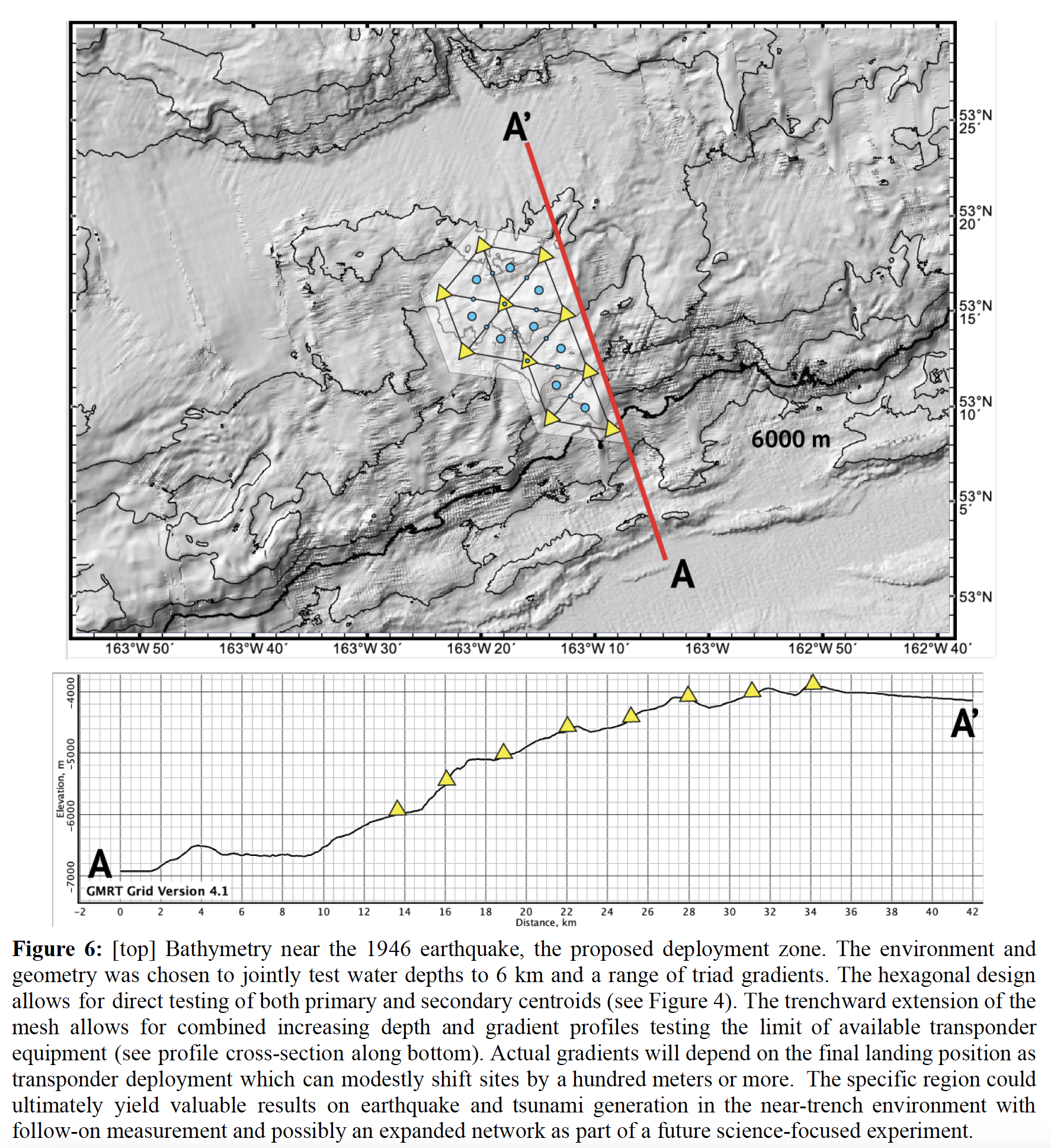Dr. Murekezi!!!
Way to go Dr. Derrick Murekezi for all your hard work and successfully defending your PhD thesis today on “Magma-Assisted Extension and Crustal Deformation ...
Update: The Postdoc position is now open for applications. You can apply here, and please feel free to contact me to discuss the position.
I was recently awarded funding for an exciting new technical experiment to push the limits of what we can do with GNSS-Acoustic-based seafloor geodetic observations. In the experiment, we are buying and deploying a new Wave Glider and 10 new transponders for deployment in the near-trench environment that are expected to be most responsible for large tsunamis.
Over three years we will specifically be testing (1) deep-water measurements using lower frequency transponders than commonly used, (2) observations that include high gradients of change across the seafloor, and (3) the application of a mesh-network design that can dramatically reduce the cost of observations where dense deformation data are helpful.
The deployment will occur in June/July 2024 on the RV Sikuliaq, during the initial deployment of instrumentation in Alaska for the Community Near-trench Geodetic Experiment. We will commence observations then, with a second Wave Glider deployment planned for 2025.
My co-investigators are Mark Zumberge at UCSD-Scripps, and Surui Xie at University of Houston. We will soon be looking for a postdoc to manage the data processing associated with this experiment.
A little more detail can be gained from the below image I pulled from the proposal.
 The proposed experiment design.
The proposed experiment design.
Way to go Dr. Derrick Murekezi for all your hard work and successfully defending your PhD thesis today on “Magma-Assisted Extension and Crustal Deformation ...
My grad student, Nathalie Chavarría, and I are on-board the RV Sikuliaq at the moment deploying a bunch of transponders and a couple of autonomous surface ve...
We just published a paper, lead by recent graduate Louisa Barama, on a machine learning method to automatically and rapidly characterize seismic signals by s...
Update: The Postdoc position is now open for applications. You can apply here, and please feel free to contact me to discuss the position.
We are nearing the end of a little boat-based field research to help understand how faults lock-up and generate some of the world’s largest earthquakes and t...
We are just now wrapping up GPS/GNSS Field work and some training along the Kivu Rift in Rwanda.
Congratulations Louisa Barama for successfully defending your PhD Thesis yesterday afternoon on “Advanced Methods for Real-Time Identification and Determinat...